Life
Sign up for our newsletter
We summarize the week's scientific breakthroughs every Thursday.
- Artificial Intelligence
AI-designed proteins test biosecurity safeguards
AI edits to the blueprints for known toxins can evade detection. Researchers are improving filters to catch these rare biosecurity threats.
- Plants
How dandelions rig the odds for catching upward gusts
New images reveal microstructures that, depending on how the wind blows, help give a dandelion seed lift-off or the grip needed to wait for a better breeze.
By Susan Milius -
 Agriculture
AgricultureA grapevine bacteria may help douse wildfire-tainted wine’s ashy aftertaste
Grape plant bacteria might help mitigate smoke taint in wine by breaking down chemicals that evoke an ashy taste.
By Carly Kay -
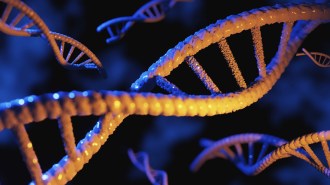 Genetics
GeneticsAI generated its first working genome: a tiny bacteria killer
Bacteriophages designed with AI kill E. coli faster than a well-studied strain, but the tech needs regulation before moving beyond lab dishes.
-
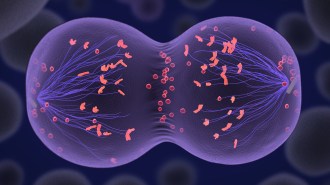 Health & Medicine
Health & MedicineScientists made human egg cells from skin cells
More work needs to be done to create viable human embryos, but the method might someday be used in IVF to help infertile people and male couples.
-
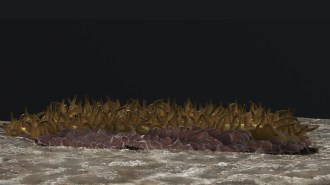 Paleontology
PaleontologyWhat may be one of Earth’s earliest animals has a punk rock vibe
Squiggly markings like a punk rock hairdo led researchers to identify the remains as spongelike animals that may have lived around 560 million years ago.
-
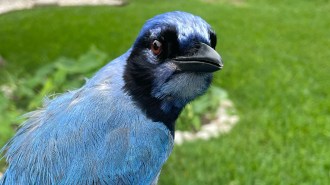 Animals
AnimalsMeet the ‘grue jay,’ a rare hybrid songbird
Despite millions of years of evolutionary separation and a geographical divide, a blue jay and green jay mated in Texas. This bird is the result.
By Sarah Boden -
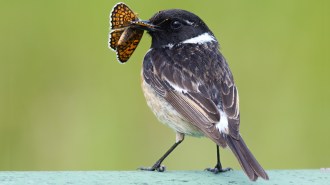 Animals
AnimalsIs camouflage better than warning colors? For insects, it depends
The effectiveness of camouflage or warning colors for insect defense depends on conditions such as light levels and how many predators are around.
By Jake Buehler -
 Psychology
PsychologyStriking moments make previous memories stronger
Emotional events help solidify memories. The findings may one day help students study or trauma survivors recover.
By Sujata Gupta -
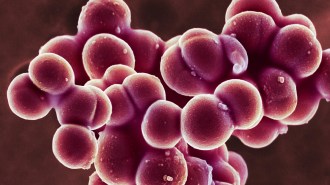 Microbes
MicrobesStaph bacteria are bad at letting go
Calcium, a mineral involved in wound healing, can strengthen the attachment between microbe and skin and make infections hard to shake.
-
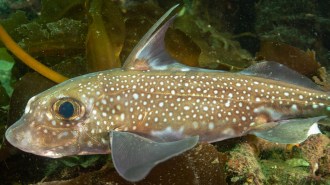 Animals
AnimalsThis ‘ghost shark’ has teeth on its forehead
Spotted ratfish, or “ghost sharks,” have forehead teeth that help them grasp onto mates. It’s the first time teeth have been found outside of a mouth.
By Meghan Rosen -
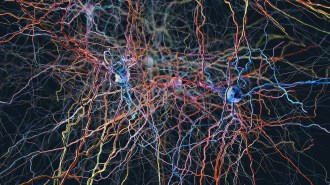 Neuroscience
NeuroscienceLung cancer plugs into the mouse brain
Exploring the relationship between cancer cells and nerve cells, which can signal tumors to grow, could unearth ways to slow disease.